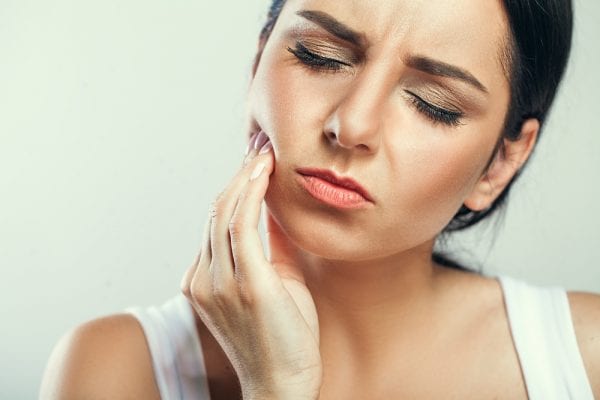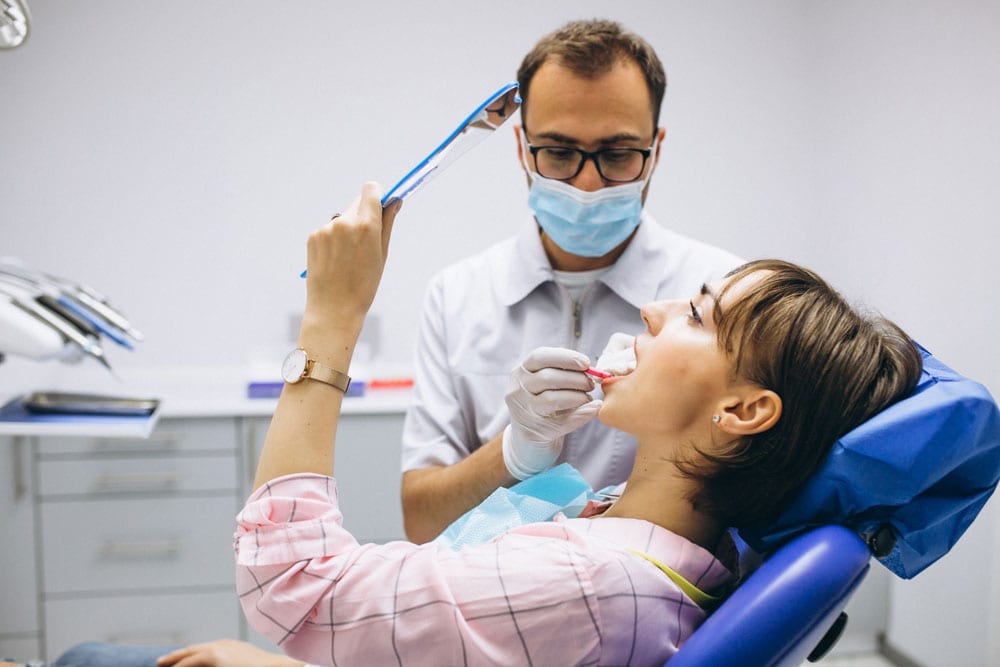Good dental habits have to be established early on. It is often easy to overlook oral hygiene in the business of daily life but there is a deep interdependence between your overall general health and good oral health. By keeping your pearly whites and gums healthy you lay the foundation for both your bodily health and mental wellbeing. It is absolutely essential to get your children on to healthy oral habits as soon as they are old enough for dental care. At your family dentists staff members are trained to help them understand the basics of good dental hygiene and its benefits. Regular visits to your dentist will also help locate potential problem areas with your children’s teeth and gums as they grow.
All healthy oral habits starting from picking up your toothbrush in the morning to brushing, flossing and rinsing last thing at night helps keep your family’s smiles healthy. Get to know the correct brushing technique and get flossing lessons for the grown-ups and the kids for the good dental health of your family! Also get to know the food and drinks you should only enjoy include or avoid in your diet to keep your teeth in top condition!
Brushing your teeth
The general rule is that you should brush your teeth at least twice a day – once in the morning and just before bedtime at night. Regular brushing of your teeth helps to dislodge and remove tiny food morsels and other debris that may have accumulated in between cleans. If you avoid brushing regularly, this food gets stuck to the teeth giving the bacteria in your mouth a chance to multiply. This kind of neglect usually results in plaque formation, smelly breath and even gum disease or other infection.
Adults
You need to use toothpaste recommended by the American Dental Association and to correctly brush your teeth, grip your toothbrush with your dominant hand and tilt the soft bristle tips to a 45 degree angle along the gum line. Gently cover all sides of the teeth surface with short, circular strokes and try to brush nooks and grooves in between your teeth too before rinsing with cold water. You may want to freshen your breath by brushing your tongue too in order to get rid of the harmful bacteria in your mouth.
Children
Young children should be taught good oral hygiene techniques as early as possible. While very young children may not be able to brush by themselves, you should do it for them. The general rule of thumb is that when your kid learns how to tie his or her shoelaces, they should also be able to use a toothbrush effectively.
Your child may not be keen to clean their teeth, for a number of reasons. But insist on them following a regular oral care routine. There are many good quality child-friendly toothpastes on the market that may be more to the liking for young palates since adult toothpaste may taste a little too strong! When your children are ready to move on to proper adult toothpaste, gently wean them off the child variety.
How to floss correctly
Flossing doesn’t just work to remove stubborn pieces of food caught between the teeth but it is also an excellent tool in the fight against many oral conditions. The toothbrush can take care of most of the cleaning but even the most advanced models cannot reach absolutely everywhere. Flossing helps to limit plaque levels between the teeth and here is how you can do it properly:
Use the finger you are most comfortable with to wrap one end of the floss around. Usually it is the index or middle finger. Then take the loose end and put it around the corresponding finger of the other hand. Use a sawing action while keeping the floss taut to gently ease it between your teeth, slowly all the way to the gum line. Then wrap the line around the tooth and move it up and down the length of your teeth until you’ve removed the plaque. Repeat this action till you complete the process for each of your teeth.
Tooth-friendly Diet
Oral hygiene is more than just brushing and flossing. It also includes the food and drink that we put in our mouths because it can either do good or damage our teeth and gums in a number of different ways. If we want to keep our mouths healthy, here is what we should include in our eating habits.
- Drink plenty of water to defend against cavity-causers.2. Eat plenty of dairy products, which are a combination of protein and calcium. It helps to strengthen your teeth.
- Include fruits and veggies in your diet because they are high in fiber and water content. It also helps to clean your mouth too. Include your favorite greens as a smack to stimulate saliva production.
- Make sure you add some lean protein in your diet. Eating food like meat, fish, eggs and poultry ensures that you get enough phosphorous to protect enamel. It also helps in replacing minerals in your teeth.Foods You Must Avoid
Limit intake of chocolates, potato chips and starchy foods as it contains huge amounts of sugar and it is sticky, which means it will cling to your teeth. It is difficult to remove from the teeth and over time they change into plaque. The bacteria in plaque produce acid that weakens the tooth enamel leading to cavities.
Also avoid drinking soft drinks loaded with sugar. Moreover some are highly acidic so they start breaking down your tooth enamel as soon as you take a swig. Your teeth become more susceptible to acid and sugar leading to development of cavities.




